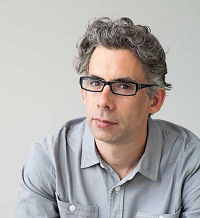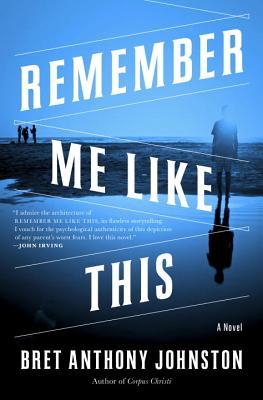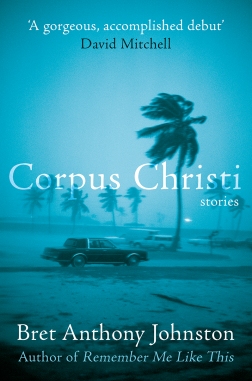 This year, our Barcelona & South of France Writing Retreat will take from July 18 – 26, 2016. At the retreat, we’ll be hosting a wide variety of craft of writing seminars, creative writing workshops. One of our featured faculty members, Bret Anthony Johnston, sat down to speak with Cambridge Writers’ Workshop’s Emily Smith for an interview. Johnston is the author of Remember Me Like This (2014) and the Director of Creative Writing at Harvard University. Read the interview below, and be sure to register for our Summer in Barcelona & South of France Writing Retreat by March 15, 2016!
This year, our Barcelona & South of France Writing Retreat will take from July 18 – 26, 2016. At the retreat, we’ll be hosting a wide variety of craft of writing seminars, creative writing workshops. One of our featured faculty members, Bret Anthony Johnston, sat down to speak with Cambridge Writers’ Workshop’s Emily Smith for an interview. Johnston is the author of Remember Me Like This (2014) and the Director of Creative Writing at Harvard University. Read the interview below, and be sure to register for our Summer in Barcelona & South of France Writing Retreat by March 15, 2016!
Emily Smith: In “Don’t Write What You Know,” you point to a quote from Tim O’Brien’s “Good Form” about “story-truth” and “happening-truth.” I immediately thought of Faulkner’s attempts at truth-telling in The Sound and the Fury – that is, his attempt at objectivity through non-traditional narrative and perspective. How do you think truth functions in your own writing?
Bret Anthony Johnston: Thanks for these good questions, Emily. As a fiction writer, I’m far more interested in emotional truth than quantifiable fact. Another way to say that might be that I’m more swayed by authenticity than accuracy. And yet, of course, there’s a paradox here because fiction, unlike fact or lived experience, has the burden of believability. Fiction has to be rendered with such care that its “truth” is unassailable. Lived experience can be, and often is, utterly unbelievable, but fiction lives and dies by far stricter standards. Fiction answers to a higher truth—or at least aspires to one. There is, I believe, something deeply comforting in that reality.
ES: Your book Remember Me Like This has been described as “an exploration of human morality” and a “moral mystery.” In a New York Times review of the book, Eleanor Henderson wrote that your novel was a reminder of the ethics of narration. Does narrative have an obligation to be moral?
BAJ: First off, Eleanor Henderson is a saint, and I feel so lucky that my book made its way to her. I also feel like I owe her a house or a pony or an island. I couldn’t have asked for a better reader or review and I remain incredibly grateful.
The question of morality is nuanced and probably unanswerable, especially in the space we have here. It’s equally possible that the question is more for the reader than the writer. I will say that I have zero interest in judging my characters; in many ways, doing so feels unforgivable. I don’t think of characters as being moral or immoral, good or bad, X or Y. Really, the word ‘or’ feels too limiting, too judgmental, in my thinking about narrative. I’m interested in reading and writing narratives where there is no “or”, but where “and” and only “and” prevails. I want complexity in characters, in stories. I want capaciousness. I want to give the readers a full spectrum of experience, so if they choose to pass judgment on the characters or view a narrative through a lens of morality, they have enough context to do so. The writer’s job is to present questions not answers.
 ES: Many of your stories are set in Texas. Aside from growing up in Corpus Christi, what do you think continues to draw your stories back to the state?
ES: Many of your stories are set in Texas. Aside from growing up in Corpus Christi, what do you think continues to draw your stories back to the state?
BAJ: One of the things we spend a lot of time talking about in my workshops is the notion that place forms and informs character, action and, of course, story. My deeply held belief is that if a writer has access to a story, lived or imagined, then the writer is obligated to tell it, to write it. Stories use writers to get written. I’m interested in those stories that can only happen in a certain place; as a reader, writer, and teacher, I’m most moved by those stories that would be fundamentally different in a different location. So far, in my own writing, those stories have taken place in Texas. I have no agenda or goal. I’m not at all trying to lay claim to a part of the world or stake out any kind of literary plot of land. Rather, the stories from that place keep elbowing their way into my imagination. They insist on being written and I feel lucky, profoundly lucky, to hear and see them.
ES: I recently finished Infinite Jest, and I know that you read during the release party for The Pale King, so I have to ask: how do you think the two books compare? There’s some discussion that The Pale King would not have been as good as Infinite Jest even if it had been completed.
BAJ: What matters to me is that Infinite Jest exists and people can access it at any time. Likewise, I take comfort that many of his short stories and essays are in the world. How one piece of work stacks up against another in a writer’s career is, to my mind, irrelevant. He wrote some flat-out astonishing fiction and nonfiction. The books reward multiple readings in ways that few others do. What more can a writer want? What more can a reader want? I can think of not one thing.
ES: What’s the best writing advice that you’ve personally received?
BAJ: I’ve benefited from so much advice over the years that it’s hard to choose, so I’ll just go with what first comes to mind, maybe because it’s what I’ve heard most recently. Allan Gurganus said that when a writer has the choice between thinking or trusting her way out of a problem on the page, she should always opt for trust. This feels so inarguably true to me that I wish I’d said it.
ES: Finally, I have to ask: you’re a skateboarding enthusiast, so what’s your favorite skateboard trick?
BAJ: The ones I’m trying to learn!
Bret Anthony Johnston is the author of the internationally best-selling novel Remember Me Like This, and author of the award-winning Corpus Christi: Stories, which was named a Best Book of the Year by The Independent (London) and The Irish Times, and the editor of Naming the World and Other Exercises for the Creative Writer. His work appears in The Atlantic Monthly, Esquire, The Paris Review, Glimmer Train Stories, Virginia Quarterly Review, The Best American Short Stories, and elsewhere. His awards include the Pushcart Prize, the Glasgow Prize for Emerging Writers, the Stephen Turner Award, the Cohen Prize, a James Michener Fellowship, the Kay Cattarulla Prize for short fiction, and many more. His nonfiction has appeared in The New York Times, the New York Times Magazine, The Wall Street Journal, Tin House, The Best American Sports Writing, and on NPR’s All Things Considered. A graduate of the Iowa Writers’ Workshop, he’s the recipient of a National Endowment for the Arts Literature Fellowship and a 5 Under 35 honor from the National Book Foundation. He wrote the documentary film Waiting for Lightning, which was released in theaters around the world by Samuel Goldwyn Films. He teaches in the Bennington Writing Seminars and at Harvard University, where he is the Director of Creative Writing.
